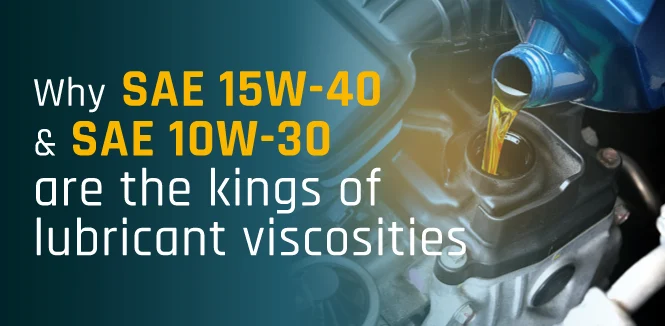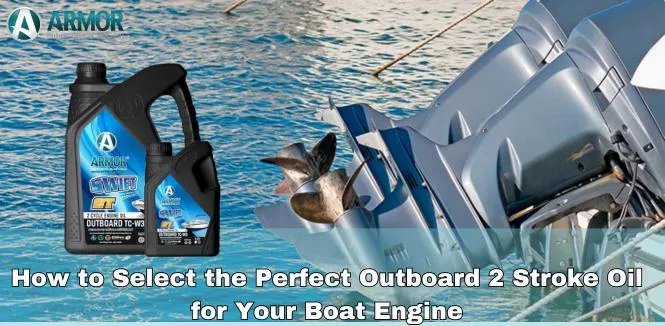Month: March 2023
Why do more people prefer to using High-Performance Lubricants?
Growing Motorcycle Market Opportunities to Lubricant Manufacturers

How Can the Motorcycle Market Provide Significant New Opportunity for Lubricant Manufacturers?
Motorcycle market is constantly growing
With the rising demand for affordable and efficient modes of transportation, especlally among the growing middle-class population and in developing regions,many people decided to shift for motorcycles as their main transportation tool.

The global motorcycle market is expected to grow at a compound annual growth rate(CAOR) of 7% from 2020 to 2027 and reach ovalue of uso 107.5 billion by 2027. This increase of sales will definitely trigger to rise of demand for motorcycle lubricants.

- Motorcycle oil
- Motorcycle coolant
- Brake Fluid
- Transmission Oil
- Hydraulic Clutch Fluid

The demand for motorcycles in these regions is driven by factors such as rising disposable incomes, growing urbanization, increasing traffic congestion, and low maintenance costs.

Summary
Armor Lubricants – The Premier Choice for Motorcycle Engine Oil
Armor Lubricants stands out as the leading motorcycle engine oil manufacturer in the UAE, offering unparalleled performance and protection for every rider. Explore Armor Lubricants’ commitment to cutting-edge research and development, which allows to formulate motorcycle oils that deliver exceptional thermal stability, wear protection, and clean engine performance, even under extreme conditions.
How To Prepare Your Motorcycle for Summer?
Protect Your Heavy-Duty Engine with Heavy Duty Oil
Why 10/30 and 15/40 Diesel Oil are the Kings of Lubricant Viscosities

Why SAE 15/40 Diesel Oil are Preferred for Heavy Duty?
10/30 Oil and 15/40 diesel oil are commonly used in heavy-duty applications because they offer a good balance of viscosity and temperature performance.
Here are some reasons why 10/30 and 15/40 diesel Oil are considered the “king” of lubricant viscosities in the heavy-duty market:
- Good viscosity at both high and low temperatures: The “15W” in the name indicates that the oil has a low-temperature viscosity rating of 15, which means it flows well at colder temperatures. The “40” indicates that the oil has a high-temperature viscosity rating of 40, which means it provides good protection at high temperatures. This balance of viscosity ratings makes 15W-40 oils suitable for use in a wide range of temperatures, which is important for heavy-duty applications.
- Meets industry standards: SAE 15W40 diesel oils meet the requirements of various industry standards, including the API CJ-4 and CI-4 Plus specifications. These API standards ensure that the oil meets certain performance criteria, such as wear protection, deposit control, and oxidation resistance.
- Widely available: 15/40 diesel oils are widely available, which makes them a convenient choice for heavy-duty operators. They can be purchased at most automotive supply stores and are often used in a variety of heavy-duty vehicles, including trucks, buses, and construction equipment.
- Cost-effective: 15/40 oil are relatively cost-effective compared to some other viscosity grades. They provide good performance for heavy-duty applications while remaining affordable for fleet owners and operators.
The Secret to 10/30 Oil and 15/40 Diesel Oil’s High Demand: What Makes These Fluids So Special?
Here are some reasons why 10/30 oil and 15/40 diesel oil are in high demand:
- They are versatile – 10/30 oil and 15w40 synthetic diesel engine oil can be used in a wide range of vehicles, from light trucks to heavy-duty diesel engines. This makes them a popular choice for fleet owners and businesses that need a single oil that can be used in all of their vehicles.
- They are affordable – 10/30 oil and 15w40 engine oil are typically more affordable than other types of oil, such as synthetic engine oil. This makes them a good option for budget-minded consumers.
- They offer good performance – 10/30 oil and 15/40 diesel oil can provide good performance in a variety of conditions, including hot weather, cold weather, and high-mileage driving. This makes them a reliable choice for drivers who need their vehicles to perform well in a variety of conditions.
- They are easy to find – 10/30 oil and 15/40 diesel oil are widely available at most auto parts stores. This makes them a convenient option for drivers who need to change their oil on a regular basis.
Overall, 10/30 oil and 15/40 diesel oil are popular choices for a variety of reasons. They are versatile, affordable, offer good performance, and are easy to find. If you are looking for an engine oil that can meet the needs of your vehicle, 10/30 oil or 15/40 diesel oil is a good option to consider.
Here are some additional details 10/30 and 15/40 Diesel oil that you may find helpful:
- 10/30 oil: This oil has a viscosity rating of 10 at cold temperatures and 30 at hot temperatures. This means that it is a good all-around oil that can be used in a variety of conditions.
- 15/40 diesel oil: This oil has a viscosity rating of 15 at cold temperatures and 40 at hot temperatures. This means that it is a good choice for high-performance diesel engines that operate in hot weather.
Can I switch to SAE 15/40 Diesel Oil or 10/30 Diesel Oil for my car?
While SAE 10/30 Oil and SAE 15/40 Diesel oils are both popular choices in the Engine oil market, it’s important to take a moment and consider if they are the right choice for your engine. One key factor to consider is the climate where you typically drive, as the viscosity of the oil can change with temperature. Therefore, it’s important to choose an engine oil that is appropriate for the temperature range of your location.
Another important consideration is to check the owner’s manual for your car to see if the manufacturer recommends a specific type of motor oil. Some vehicles may have unique requirements that should be followed to ensure proper engine performance and longevity.
By taking these factors into account and choosing the appropriate motor oil for your engine, you can help ensure optimal engine protection and performance.
Added Benefits
Although 15W40 Diesel Oil and 10w30 diesel Engine oil viscosities are often considered kings of the market when it comes to motor oil, it’s important to remember that not all products with these viscosities are created equal. There are significant variations in product quality and properties based on several factors, including:
- Type of Engine oil : Synthetic Engine Oil, Semi-synthetic Engine Oil, and mineral oils have different properties, and their prices can vary significantly as well. It’s important to choose the right type of Engine oil for your engine’s needs, based on factors such as driving conditions and engine design.
- Engine Oil Brand : Purchasing motor oil from a known and reputable brand is always a safer choice. When you purchase Engine oil from a shady or unknown manufacturer, you risk using low-quality materials or oils that may not meet international standards.
- Additives : When additives are added to engine oil, they can provide additional benefits such as improved fuel economy or better engine performance. However, not all additives are created equal, and some may not be compatible with your engine or may cause other issues.
FAQs for 10/30 oil and 15/40 Diesel Oil
Ques: What is 10/30 oil?
Ans: 10/30 oil is a multi-grade oil that has a viscosity rating of 10 at cold temperatures and 30 at hot temperatures. This means that it is a good all-around oil that can be used in a variety of conditions.
Ques: What is 15/40 diesel oil?
Ans: 15/40 diesel oil is a multi-grade Lubricants that has a viscosity rating of 15 at cold temperatures and 40 at hot temperatures. This means that it is a good choice for high-performance diesel engines that operate in hot weather.
Ques: Why are 10/30 oil and 15/40 diesel oil in high demand?
Ans: There are a few reasons why 10/30 oil and 15/40 diesel oil are in high demand. First, they are versatile oils that can be used in a wide range of vehicles, from light trucks to heavy-duty diesel engines. Second, they are relatively affordable, making them a good option for budget-minded consumers. Third, they offer good performance in a variety of conditions, including hot weather, cold weather, and high-mileage driving. Fourth, they are easy to find, as they are widely available at most auto parts stores.
Ques: What are the benefits of using 10/30 oil or 15/40 diesel oil?
Ans: There are a number of benefits to using 10/30 oil or 15/40 diesel oil. These oils can help to:
- Protect your engine from wear and tear
- Improve fuel economy
- Reduce emissions
- Extend the life of your engine
- Keep your engine running smoothly
Ques: What are the drawbacks of using 10/30 oil or 15/40 diesel oil?
Ans: There are a few drawbacks to using 10/30 oil or 15/40 diesel oil. These oils can:
- Thicken at cold temperatures, making it difficult to start your engine
- Thin out at high temperatures, reducing their ability to protect your engine
- Contain more impurities than synthetic oils, which can lead to premature engine wear
Ques: Is 10/30 oil or 15/40 diesel oil right for my vehicle?
Ans: The best way to determine if 10/30 oil or 15/40 diesel oil is right for your vehicle is to consult your owner’s manual. Your owner’s manual will specify the type of oil that is recommended for your vehicle.
Ques: What are some alternatives to 10/30 oil or 15/40 diesel oil?
Ans: There are a few alternatives to 10/30 oil or 15/40 diesel oil. These include:
- Synthetic oil: Synthetic oil is a more advanced type of oil that can offer better performance and protection than conventional oil.
- High-mileage oil: High-mileage oil is designed for vehicles with high mileage. It can help to reduce oil consumption and improve engine performance.
- Diesel blend oil: Diesel blend oil is a combination of conventional oil and diesel fuel. It can help to improve fuel economy and reduce emissions.
The best alternative for your vehicle will depend on your individual needs and preferences.
From heavy-duty trucks to industrial equipment, diesel engines demand robust lubrication solutions. Armor Lubricants stands out as a leading diesel engine oil manufacturer in the UAE, offering a comprehensive range of high-performance diesel engine oil for modern diesel engines.
4 Essential Tasks for JetSki Maintenance in Summer

JetSki Maintenance Must-Dos
Change the 2 stroke boat oil for Jet Ski
To find out how often you should change the oil in a jet ski, read the manufacturer’s manual. The manual provides precise information about your exact model. Most manufacturers typically recommend changing the oil after one year. But it is better to use the hours of usage as a measurement and service the lubricating system after every 50 engine hours because the oil in a jet ski can become contaminated with moisture and carbon during operation, reducing its effectiveness. Accordingly, the oil in a jet ski will need to be changed more frequently if it is used recurrently.
It is important to know that not all jet skis need oil changes. 4-stroke engine jetskis, in particular, have a separate oil system that necessitates regular oil changes. 2-stroke engine jet skis, on the other hand, use a mixture of oil and 2-stroke boat motor oil and thus do not require the same type of oil changes.
The oil you use for your jet ski should be specially formulated for outboard and jet skis, not regular automotive oil. Driving the jet ski in the sea means exposure to more humidity and salt. Therefore, the motor oil must contain unique additives that provide additional care for engine components.
It is usually advised to use 10W-30 2 stroke marine engine oil, as this oil provides exceptional protection to the marine engine and withstands summer’s high temperatures.
As for two-stroke ones, make sure you choose 2 cycle engine oil because this lubricant oil is designed to be mixed with oil and burned with it while protecting and lubricating the engine.
Replace Spark Plugs for Jet Ski
Replacing the spark plug is a small investment with a huge outcome for your jet ski. It does not usually cost more than 2 – 3 dollars to replace, but the increase in performance that occurs then is totally worth it.
It is recommended to change the spark once every year. It is easy to replace by yourself if have the needed tools, but if you do not, just take it to the mechanic and get it replaced in a few minutes.
Change the Battery
While the lifespan of jet ski batteries is commonly stated to be 3 to 5 years, it is only true to batteries that have proper maintenance and care. How often you need to replace the battery is determined by several factors:
- The type of battery
- Operating temperatures
- If it is regularly maintained.
Proper care and maintenance can extend the jetski battery’s lifespan from 1 -2 years to 3 to 5 years. Proper jetski maintenance includes charging the battery if the jet ski is not regularly used and ensuring the jet ski works at suitable temperatures.
To ensure optimal performance and longevity, adhere to the manufacturer’s recommended maintenance schedule and inspect and test the battery on a regular basis, and never start the engine with an empty battery.
Flush all the fluids
After the end of the riding season, it is imperative to drain and replace all fluids from the engine, including fuel and motor oil. Taking all fluids from the engine is important as it reduces the chances of residue formation. Therefore, the engine will be more protected from corrosion, increasing its lifespan.
The same applies to both 4 stroke and 2 stoke marine engine oil. The only difference is the type of fluids that are used them.
In Conclusion
Extend the life of your jet ski with these four essential summer maintenance tasks. From oil changes to inspections, this guide helps you keep your personal Jet Ski in top condition for years of reliable fun. Keep your 2-cycle engine running strong with Armor Lubricants manufactured TCW3 SAE 30 Outboard Motor Oil.
Rev Up your Outboard Engine with 2 Stroke Outboard Motor Oil
Everything You Need to Know about Outboard Motor Oil

Marine 2-stroke outboard motor oil is designed to withstand the harsh conditions of the marine environment. It is also formulated to resist oxidation and breakdown, which can occur when the oil is exposed to water and salt. Using the right marine 2-stroke outboard motor oil can help to extend the life of your engine and improve its performance.
Consequences of using low-quality 2 stroke outboard motor oil in your outboard engine
The outboard engine is the heart of your boat that enables you to take trips across the sea effortlessly. Inside that heart, several parts are moving and rubbing against each other fast. The friction between the parts produces heat and damages the surfaces, causing them to wear.
While engine oil forms a layer of extra protection for the moving parts, using low-quality oil weakens this protection. Low-quality motor oil is either made from inferior base oil or has insufficient amounts of additives. Either way, the result will not be good for the outboard motor.
The consequences of Using low-quality or incorrect 2 stroke outboard oil in your outboard engine are severe. For instance, the oil may not lubricate or protect the engine adequately, resulting in quicker wear and tear. If not addressed, the issue will evolve to cause a drop in performance and perhaps a catastrophic engine failure.
Benefits of 2 stroke outboard oil
Here are some of the benefits of using the right 2 Stroke Outboard Oil:
- Improved Engine Performance: The right outboard oil can help your outboard motor run more smoothly and efficiently.
- Reduced Wear and Tear: The right Outboard oil can help protect your outboard motor’s components from wear and tear.
- Extended Engine Life: The right outboard motor oil can help extend the life of your outboard motor.
- Reduced Emissions: The right outboard motor oil can help reduce your outboard motor’s emissions.
Marine 2-stroke outboard motor oil essential?
- Marine 2-stroke outboard motor oil lubricates the engine’s moving parts, preventing wear and tear.
- It also helps to cool the engine, preventing overheating.
- Additionally, marine 2-stroke outboard oil helps to reduce emissions, making your boat more environmentally friendly.
Difference between 4 stroke and 2 stoke outboard oil
2 stroke outboard Motor oil and four-stroke oil differ not only in their lubrication systems but also in the additives used. Each type of outboard oil has a distinct set of additives designed to meet the specific requirements of the engine it is intended for.
Marine 2 stroke tcw3 oil typically contains additives that promote engine cleanliness, reduce exhaust smoke, and prevent spark plug fouling. These additives help to maintain the engine’s performance and protect it from damage caused by carbon deposits and other contaminants.
On the other hand, 4 stroke engine oil requires different lubricant additives to provide adequate protection and lubrication. These additives focus on reducing engine wear, preventing deposits, and maintaining engine cleanliness over extended periods of use.
Some common additives found in 4 stroke oil include detergents, dispersants, friction modifiers, and anti-wear agents. These additives help to prevent the build-up of sludge and varnish in the engine, reduce friction between moving parts, and enhance the oil’s flow properties.
Factors to consider when choosing 2 stroke outboard oil
- API and JASO certification: The API (American Petroleum Institute) and JASO (Japanese Automotive Standards Organization) have developed standards for 2-stroke outboard motor oils. These standards ensure that the oil meets certain performance requirements, such as preventing engine wear and emissions. Look for an oil that is certified by both API and JASO.
- Viscosity: The viscosity of an oil is its thickness. Oils with a higher viscosity are thicker and will provide better protection in cold weather. Oils with a lower viscosity are thinner and will provide better fuel economy. The viscosity of the oil you choose will depend on the climate you live in and the type of outboard motor you have.
- Smoke Emission: 2-stroke outboard motors produce smoke when they burn fuel. The amount of smoke produced depends on the type of oil you use. Look for an oil that reduces smoke emissions to help keep your boat clean and reduce air pollution.
- Price: 2-stroke outboard motor oils can range in price from a few dollars to over $20 per bottle. Choose an oil that fits your budget.
- Manufacturer’s recommendations: The manufacturer of your outboard motor will have recommendations for the type of oil that is best for your engine. It is important to follow these recommendations.
Outboard Motor Oil Manufacturer Alternatives?
We completely understand your desire to provide your engine with the best possible protection by using the manufacturer’s recommended oil. However, it’s important to note that there are other high-quality outboard motor oil alternatives available in the market that can provide similar protection and performance.
In fact, opting for a reputable brand with the right type of marine tcw3 2 stroke oil and additives can offer just as much protection and performance as the manufacturer’s recommended oil. By considering the factors we’ve discussed earlier, such as the type of engine, the operating conditions, and the oil’s viscosity, you can make an informed decision and choose an alternative oil that meets your specific requirements.
By following these tips, you can help to keep your outboard motor running smoothly and efficiently for many years to come.
In Conclusion
For those seeking best 10w30 outboard oil, Armor Lubricants manufacturer in the uae provides premium solution designed to enhance outboard engine performance and longevity. Our outboard oils ensure optimum lubrication, reduce engine wear, and protect against harsh marine conditions, keeping your outboard motor running smoothly. Explore our range of outboard oils for your marine needs and experience the performance with globally recognized products.





